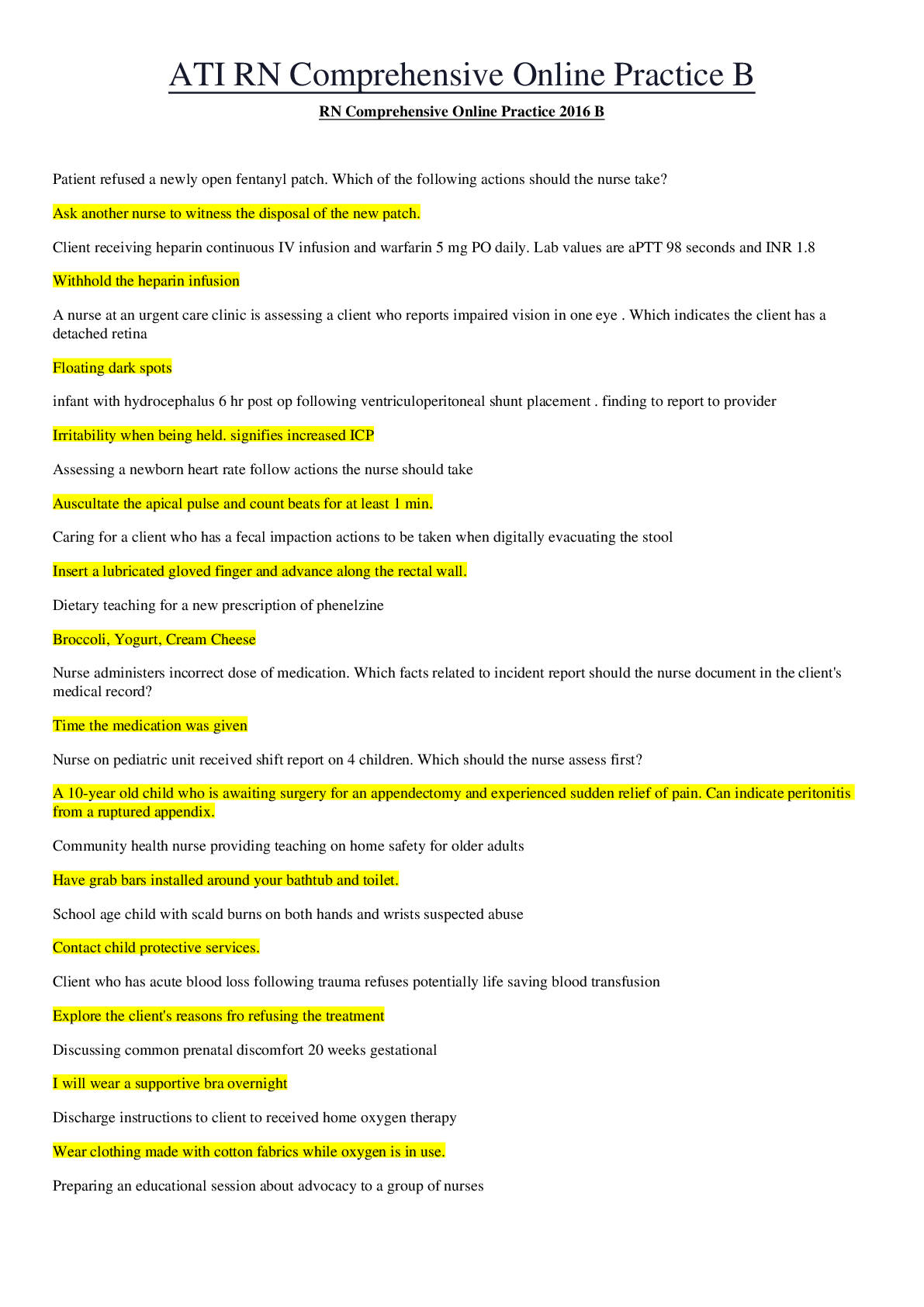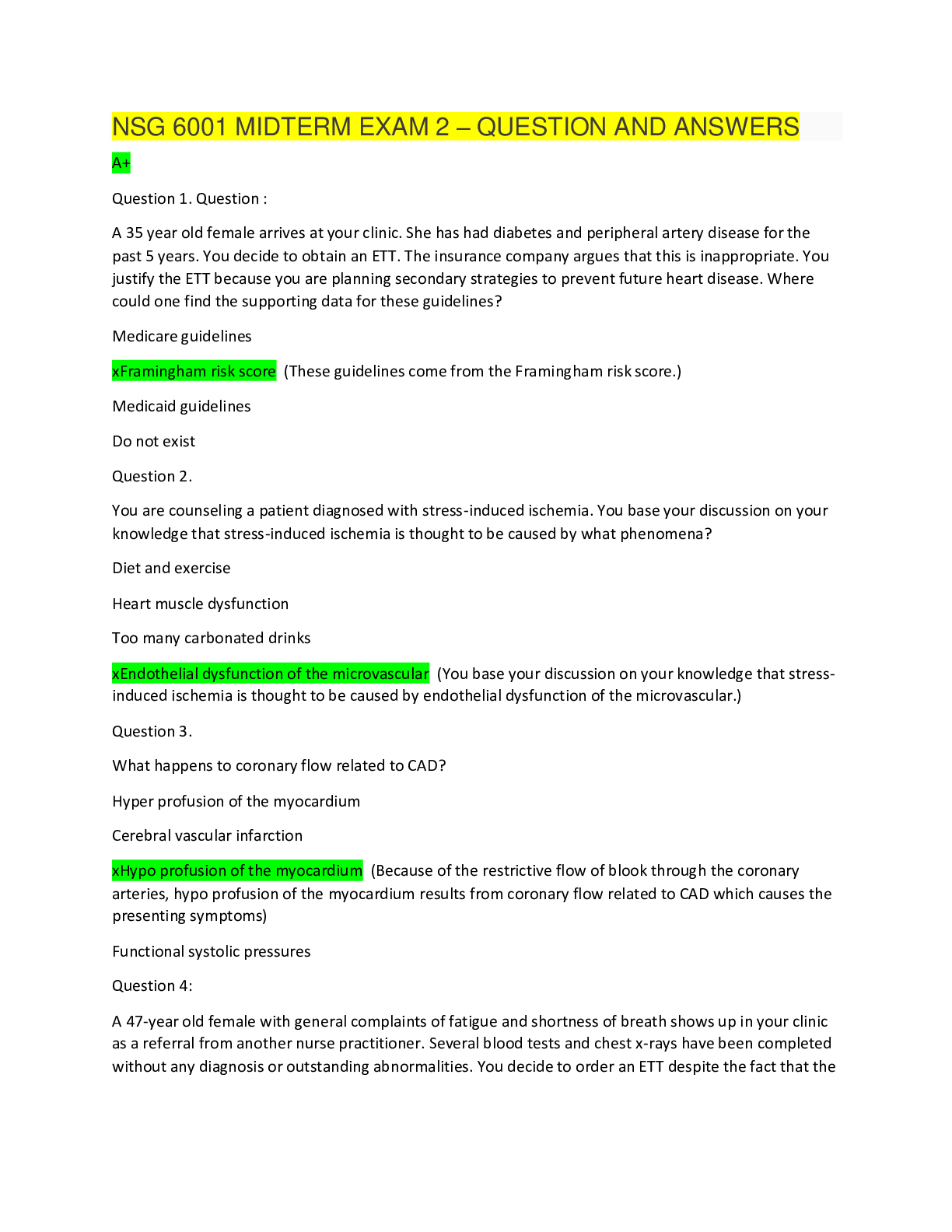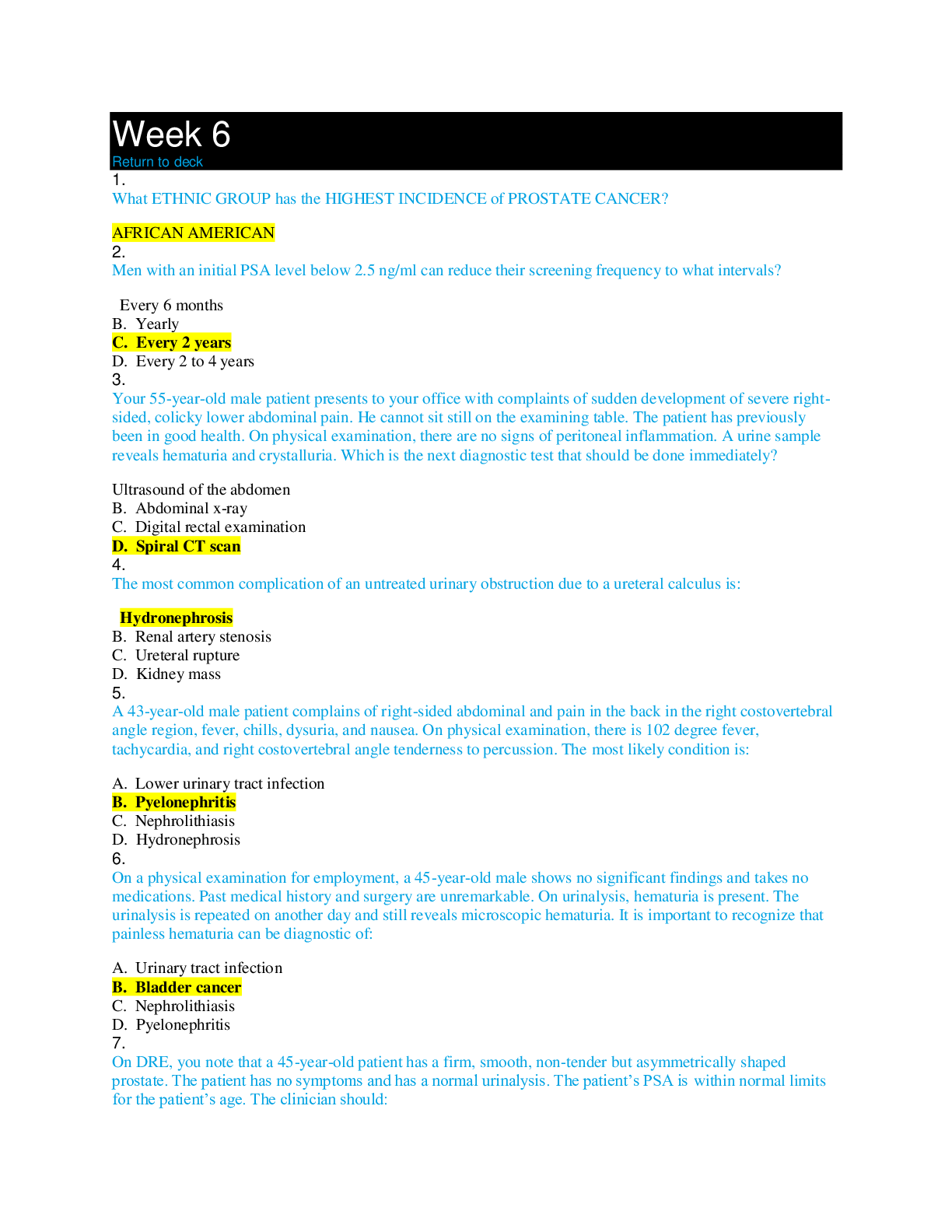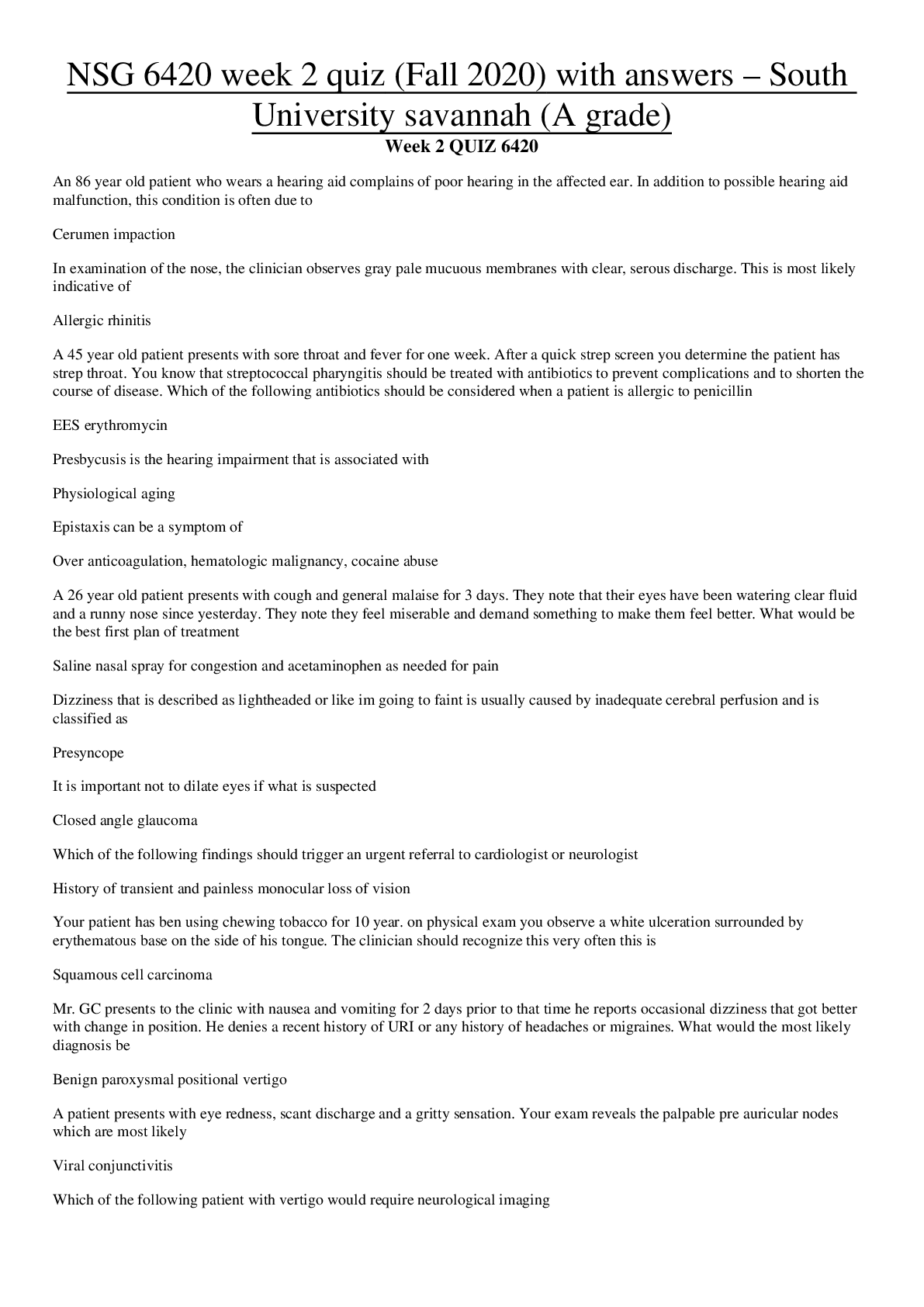Pharmacology > EXAM > NSG 6005 Week 2 Pharm Quiz Fall 2019 – South University Savannah / NSG 6005 Week 2 Pharm Quiz Fall (All)
NSG 6005 Week 2 Pharm Quiz Fall 2019 – South University Savannah / NSG 6005 Week 2 Pharm Quiz Fall 2019
Document Content and Description Below
NSG 6005 Week 2 Pharm Quiz Fall 2019 – South University Savannah / NSG 6005 Week 2 Pharm Quiz Fall 2019 1. Question : Carbamazepine has a black box warning recommending testing for the HLA-B*1502 ... allele in patients with Asian ancestry prior to starting therapy due to: Question 2. Question : Common OTC pain relievers such as acetaminophen or ibuprofen: Question 3. Question : Factors that affect gastric drug absorption include: Question 4. Question : Nonadherence is especially common in drugs that treat asymptomatic conditions, such as hypertension. One way to reduce the likelihood of nonadherence to these drugs is to prescribe a drug that: Question 5. Question : The first step in the prescribing process according to the World Health Organization is: Question 6. Question : A twenty-four-year-old male received multiple fractures in a motor vehicle accident that required significant amounts of opioid medication to treat his pain. He is at risk for Type __ ADR when he no longer requires the opioids. Question 7. Question : Drugs that use CYP3A4 isoenzymes for metabolism may: Question 8. Question : Herbs and supplements are tested for safety by the FDA. Question 9. Question : The route of excretion of a volatile drug will likely be: Question 10. Question : Genetic testing for VCORC1 mutation to assess potential warfarin resistance is required prior to prescribing warfarin. Question 11. Question : When obtaining a drug history from Harold, he gives you a complete list of his prescription medications. He denies taking any other drugs, but you find that he occasionally takes aspirin for his arthritis flare-ups. This is an example of: Question 12. Question : The time required for the amount of drug in the body to decrease by 50% is called: Question 13. Question : Steady state is: Question 14. Question : Patient education regarding prescribed medication includes: Question 15. Question : Drugs that have a significant first-pass effect: Question 16. Question : Patients with psychiatric illnesses have adherence rates to their drug regimen between 35% and 60%. To improve adherence in this population, prescribe drugs: Question 17. Question : Genetic polymorphisms account for differences in metabolism, including: Question 18. Question : Which of the following factors may adversely affect a patient’s adherence to a therapeutic drug regimen? Question 19. Question : The role of the nurse practitioner in the use of herbal medication is to: Question 20. Question : Pharmacokinetic factors that affect prescribing include: [Show More]
Last updated: 2 years ago
Preview 1 out of 16 pages

Buy this document to get the full access instantly
Instant Download Access after purchase
Buy NowInstant download
We Accept:

Reviews( 0 )
$10.00
Can't find what you want? Try our AI powered Search
Document information
Connected school, study & course
About the document
Uploaded On
May 28, 2020
Number of pages
16
Written in
Additional information
This document has been written for:
Uploaded
May 28, 2020
Downloads
0
Views
87








 – University of the People.png)

















